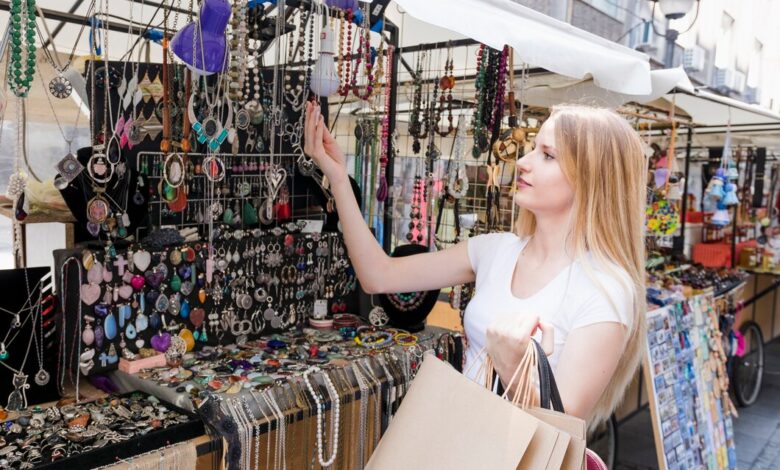Nigeria’s Most Popular Markets

Nigeria, a country known for its rich culture and bustling cities, boasts some of the most vibrant and diverse markets in Africa. These markets are not just places for trading goods but are cultural hubs that offer a unique glimpse into the daily lives of Nigerians. Here are some of Nigeria’s most popular markets that every visitor and local should experience.
1. Balogun Market, Lagos
Located on Lagos Island, Balogun Market is arguably Nigeria’s largest and busiest market. Known for its wide variety of goods, including textiles, clothing, shoes, and accessories, this market is a shopper’s haven. The market’s labyrinthine streets are always bustling with activity, offering an authentic Nigerian shopping experience. Haggling is part of the fun, and you can often find great bargains if you have the patience and skill to negotiate.
2. Onitsha Main Market, Anambra
Onitsha Main Market, situated in Anambra State, is one of the largest markets in West Africa. It serves as a major commercial hub, attracting traders and buyers from across Nigeria and beyond. The market is known for its wholesale and retail trading, offering everything from electronics and household items to textiles and food products. Its vast size and extensive range of goods make it a critical economic center in the region.
3. Kantin Kwari Market, Kano
Kantin Kwari Market in Kano State is renowned for its extensive selection of textiles and fabrics. It is one of the largest textile markets in Africa, offering a wide range of materials, from traditional Nigerian prints to imported fabrics. The market is a key destination for fashion designers, tailors, and anyone interested in Nigerian fashion. Besides textiles, the market also offers a variety of other goods, including clothing, shoes, and accessories.
4. Ariaria International Market, Aba
Ariaria International Market, located in Aba, Abia State, is often referred to as the “China of Africa” due to its extensive range of locally manufactured goods. The market is famous for its leather products, particularly shoes and bags, which are crafted by skilled local artisans. Ariaria also offers a wide array of textiles, clothing, and other manufactured goods, making it a vital economic hub in Nigeria’s southeastern region.
5. Zaki Biam Yam Market, Benue
Zaki Biam Yam Market in Benue State is the largest yam market in Nigeria and possibly the world. Known as the “Food Basket of the Nation,” Benue State’s fertile land produces a significant portion of Nigeria’s yams, and this market is the epicenter of that trade. Buyers from all over Nigeria and neighboring countries flock to Zaki Biam to purchase yams in bulk. The market is a vital part of the local economy and a fascinating place to visit, especially during the peak yam trading season.
6. Oja Oba Market, Ibadan
Oja Oba Market, also known as King’s Market, is located in Ibadan, Oyo State. It is a historic market with roots tracing back to the old Oyo Empire. Today, it remains a bustling commercial center offering a variety of goods, including traditional crafts, textiles, and food items. The market is also known for its vibrant cultural atmosphere, where you can experience the rich Yoruba heritage through its products and interactions with traders.
7. Wuse Market, Abuja
Wuse Market is the largest and most popular market in Nigeria’s capital city, Abuja. It offers a wide range of products, from fresh produce and groceries to clothing, electronics, and household items. The market is well-organized, making it relatively easy to navigate compared to some other Nigerian markets. Its central location and diverse offerings make it a favorite shopping destination for both locals and expatriates.
8. Jankara Market, Lagos
Located on Lagos Island, Jankara Market is one of Lagos’s oldest markets, known for its vibrant atmosphere and diverse range of goods. The market is particularly famous for traditional fabrics, including Ankara and lace, as well as a variety of traditional medicines, herbs, and ceremonial items. Jankara Market offers a rich cultural experience, providing insights into Nigerian traditions and customs.
9. Bodija Market, Ibadan
Bodija Market in Ibadan is one of the largest food markets in Nigeria. It is a major source of fresh produce, meat, and other foodstuffs for residents of Ibadan and surrounding areas. The market is known for its vibrant and bustling atmosphere, with traders selling a wide range of agricultural products. Bodija Market is a crucial part of the local economy and a great place to experience the diverse culinary ingredients of Nigeria.
10. Kurmi Market, Kano
Kurmi Market, located in the heart of Kano city, is one of the oldest markets in Nigeria, dating back to the 15th century. This historic market is known for its traditional crafts, including leather goods, pottery, and metalwork. Kurmi Market offers a glimpse into the rich cultural heritage of Kano and is a must-visit for those interested in traditional Nigerian crafts and artifacts.
Nigeria’s markets are more than just places to buy and sell goods; they are vibrant cultural centers that reflect the country’s diversity and entrepreneurial spirit. From the sprawling textile markets of Kano to the historic trading hubs of Lagos and Ibadan, each market offers a unique experience that showcases the best of Nigerian commerce and culture. Whether you are a local resident or a visitor, exploring these markets is a fascinating way to connect with the heart and soul of Nigeria.




